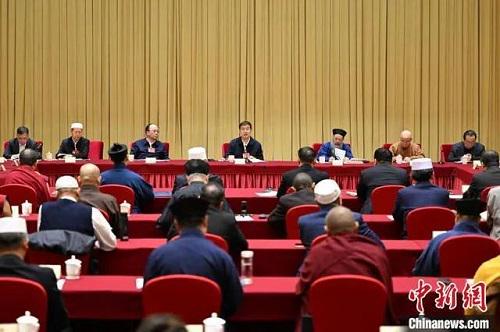China's top political advisory body held a meeting on “Strengthening Protection and Use of Relics in Sites for Religious Activities” with religious communities nationwide during the second session of the 14th National Committee of the Chinese People's Political Consultative Conference.
According to the China News Service, committee members from Taoism, Buddhism, Islam, Catholicism, and Christianity met on March 7 to discuss issues such as "the shortage of professionals in cultural relic protection" and "the cultural connotation of religious relics that needs to be explored" at the meeting.
Rev. Xu Xiaohong, president of the eleventh National Committee of the Three-Self Patriotic Movement (TSPM), mentioned the global impact of the Nestorian relics in China, which presented strong evidence of the exchange between Eastern and Western cultures along the Silk Road. Rev. Xu also pointed out that church journals such as The Globe Magazine were important resources for studying China’s modern history, particularly emphasizing the urgent need to protect the rare and only existing copies.
Bishop Joseph Yang Yongqiang, vice president of the Catholic Patriotic Association (CPA), proposed that simplifying the approval process for repair funds and shortening the disbursement period could help religious sites be available as soon as possible. He further stressed the importance of improvements in the overall planning during the renovation of the sites for religious activities, including consideration of the art value and religious connotation of the relics, as well as infrastructure improvement.
- Translated by Poppy Chan












